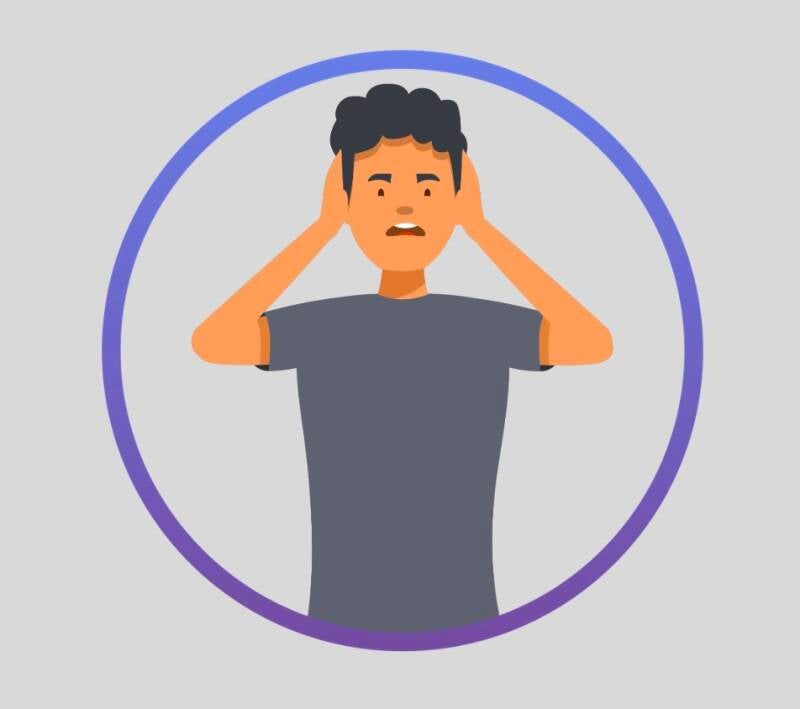If you have tinnitus, you might also experience something called Hyperacusis. This isn't just disliking loud sounds; it's a condition where everyday, normal sounds—like running water, a car door slamming, or even someone chewing—feel painfully or overwhelmingly loud to you. It's often misunderstood, but it's important because the two conditions frequently go hand-in-hand.

Why the Two Conditions are Linked
Both tinnitus and hyperacusis are believed to be rooted in the same general problem: the brain’s central auditory processing system becoming overactive or reorganized.
When your auditory system is damaged (often by noise exposure or hearing loss), your brain might try to compensate in two ways:
-
Tinnitus: It generates a phantom sound signal (the ringing) to fill in the missing information.
-
Hyperacusis: It turns the "gain" or volume up on all incoming sounds, making everything sound much louder than it actually is. The sound isn't just amplified; the perception of it is often irritating or even physically painful.
The Misleading Impulse to Avoid Sound
When sounds hurt, the natural reaction is to wear earplugs constantly or withdraw to quiet environments. While ear protection is essential for truly loud events (like concerts or power tools), overprotecting your ears from everyday noise can actually make hyperacusis worse.
When you continually use earplugs in quiet settings, you starve your auditory system of normal stimulation. The brain then cranks up its internal sensitivity even more, causing the system to overreact when a normal sound eventually breaks through.
The Management Strategy: Sound Desensitization
The best way to manage hyperacusis is through sound desensitization, which is the exact opposite of avoiding noise.
-
Gentle Reintroduction: The goal is to gradually retrain your brain to tolerate normal sound levels again. This often involves introducing low-level sound enrichment (white noise or nature sounds) for long periods.
-
A "Sound Shower": Professionals sometimes call this a "sound shower." You don't want silence, but you don't want anything too loud either. By keeping the environment consistently and gently filled with neutral sound, you slowly lower the volume dial on your brain's auditory system.
-
Professional Guidance: For severe cases, a specialized audiologist may prescribe customized sound therapy devices or structured exposure therapy to carefully re-accustom your ears to specific sounds without causing pain or distress.
If you find that normal life sounds are causing you pain, talk to a professional about hyperacusis. Managing that sound sensitivity is often one of the quickest ways to find relief from the total burden of your ear issues.
Final Thoughts
It can feel incredibly frustrating to deal with both internal noise (tinnitus) and external sound sensitivity (hyperacusis), but they are related problems that share a solution: sound therapy. By providing your brain with a consistent, non-threatening sound environment, you can gradually dial down that overactive sensitivity. If you're struggling with loud sounds, please avoid retreating into silence, and instead, seek out an audiologist who can guide you through the process of sound desensitization. Taking small, patient steps toward re-engaging with sound is the most effective way to quiet both the ringing and the pain.